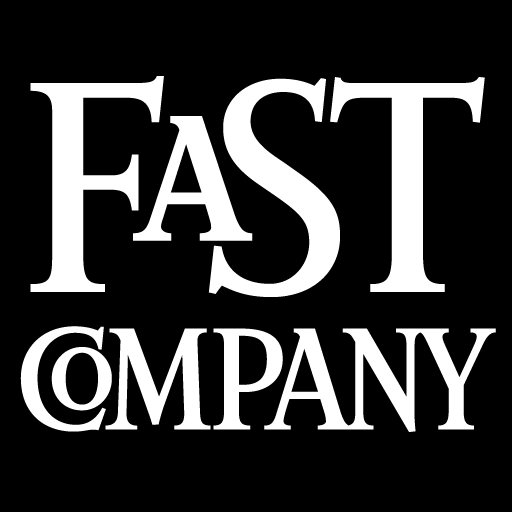
Cornucopia Unveils its Organic Chicken and Turkey Scorecard, Report Details Major Flaws in the Organic Certification System
Most consumers are under the impression that as long as a brand of chicken carries the USDA organic seal, there is nothing to worry about. They simply assume that the seal makes everything equal.
If only this were the case.
Unfortunately, there are major differences between how organic birds are raised on small family farms and those on ‘organic factory farms.’
In its excellent new investigative report called For the Birds: How to Recognize Authentic Organic Chicken and Turkey, watchdog organization The Cornucopia Institute uncovers empty assurances of big organic poultry brands and implores consumers to buy from authentic organic farmers.
Cornucopia also released an interactive Organic Poultry Scorecard that surveys more than 60 marketplace brands of chicken and turkey, highlighting authentic organic producers and exposing industrial-scale, faux-organic producers and brands.
I recently caught up with Cornucopia’s Marie Burcham, lead author of the report, to discuss her findings. Below is an edited version of our conversation.
What is the truth about organic chicken and turkey that most people do not understand?
The marketplace for organic poultry is highly consolidated, and conventional companies who are marketing organic products dominate the supply. Industrial organic poultry producers use a host of clever promotional tactics to belie the fact that they rarely allow their birds to have legitimate time outdoors. These chickens and turkeys are packed into barns for their short lifespans; individual birds may never see the outdoors.
What is the problem with the current rules?
The current organic regulations do little to ensure animal welfare for organic poultry. While producers are bound by requirements dictating pasturing for beef and dairy cattle, there are no such requirements for poultry. Additionally, there is no clear definition for “outdoor access” in the regulations. Overcrowding and confinement deprive birds of space to express their natural behaviors, leading to health concerns caused by stress on the flock.
Authentic organic chicken and turkey producers give their flocks sufficient room both indoors and outdoors. These superior producers give all their birds opportunities for legitimate foraging and the expression of other natural behaviors.
But authentic organic producers who care about animal welfare share the USDA organic label with producers who keep birds indoors for their entire short lives.
Are some organic certifiers simply not doing their job and is the USDA turning a blind eye to this?
Our organization has spent several years looking at the varying practices of USDA accredited certifiers. A small number of these, including OneCert and Organic Crop Improvement Association, certify livestock operations that adhere to the strictest standards for pasture quality and outdoor access. Other certifiers turn up again and again when Cornucopia files complaints with the USDA about grazing or pasture compliance, outdoor access, using porches for layers, animal abuse and other organic noncompliance.
Cornucopia is aware, via Freedom of Information Act requests, that some certifiers have skipped on-site visits entirely, failed to conduct unannounced inspections, lacked the number of inspectors required to perform inspections, and have not provided appropriate training to inspectors on their payroll. Some certifiers have missed or outright ignored egregious violations by some of the largest livestock producers.
The USDA’s National Organic Program has yet to provide guidance to certifiers that would clarify the livestock standards, and this has allowed certifiers to make liberal interpretations, pushing the bounds of what is logical given the language in both OFPA and the regulations.
In addition, complaints against certifiers rarely amount to de-accreditation from the USDA. When the USDA discovers non-compliance, its enforcement is often too little, too late. The fines levied against these massive operations and certifiers are viewed less as a deterrent than a cost of doing business.
What was the biggest thing you learned during the process of writing this report?
The dearth of authentic certified organic chicken and turkey is a real concern. The depth of this problem became very clear as I investigated brands in the marketplace. Most grocery store brands are owned by a handful of companies that produce conventional chicken as well. Authentic organic poultry farmers do exist, but their chicken and turkey may not be available to consumers throughout the country.
Once we realized that consumers may struggle to find truly organic chicken and turkey, we decided to publish a Do-it-Yourself Guide to Choosing The Best Chicken and Turkey. This resource helps consumers to ask farmers the kinds of insightful questions that an organic certifying agent would ask when inspecting an organic poultry farm.
Each time we shop at a grocery store or farmers market, we are voting for the production practices we value in our food system. Our everyday choices support the survival of authentic organic farmers, promote animal welfare and encourage better production practices.
—
Which seems more organic to you?
The industrial ‘organic’ producer (top) or the organic family farm (bottom). All photos courtesy of The Cornucopia Institute.


 |
With gratitude, 
Max Goldberg, Founder |
Quick Hits
* On Living Maxwell, I interviewed my good friend Whitney Lauritsen (aka Eco-Vegan Gal) about her fantastic new book The Vegan Ketogenic Diet Cookbook.
* Miyoko’s food truck is set to give away 15,000 vegan grilled cheese sandwiches on its cross-country tour, which begins at Expo West.
* Organic, plant-based restaurant Le Botaniste will soon be opening its fourth location in NYC, this time on the Upper West Side.
* Sequoia is the first climate-neutral food chain in Belgium.
* The band Sunfruits just dropped its debut EP called Certified Organic.
* Odd.Bot, the weed-pulling robot that could eliminate herbicides.
* Whole Foods is offering “Little Italy” pop-up dinners in select cities across the country.
* The Indian food takeaway Holi Organic has a new location in Los Angeles.
* A fascinating profile of Kind Traveler, a socially conscious hotel booking and sustainable travel media platform.
New Organic Products
Dental Floss from Thrive Market
For those looking for floss that accommodates wider spaces, the organic dental floss from Thrive Market is what you want. It is made from nylon that is coated with tea tree oil and organic beeswax, and the eco-friendly packaging is made from FSC paperboard and sugarcane paper. Fully recyclable, no plastic packaging used, no animal testing.Sweetheart Pop from Lesser Evil
Just in time for Valentine's Day, Lesser Evil has introduced a limited edition Sweetheart Pop organic popcorn. Plant-based and featuring festive pops of pink from red radish vegetable juice, it is exclusively available at Whole Foods Market nationwide and on the company's website until the end of February.Tree Frog Pale Ale from Hopworks Urban Brewery
In celebration of the 12th annual Zwickelmania, Oregon's Hopworks Urban Brewery is releasing its first-ever canned pale ale, Tree Frog Organic Pale Ale. An easy-drinking pale ale made with all-organic hops and floral aromas, Tree Frog Organic Pale Ale will be available in 12-ounce six-packs and on draft at Hopworks’ three pubs, as well its distribution channels.Weekly News Summaries


Largest Maker of Pesticide Linked to Brain Damage in Kids to Stop Producing the Chemical
By Sam Levin
This announcement comes after the Trump administration reversed plans to ban chlorpyrifos and rejected scientific conclusions of experts.

Miyoko's sues the State of California for Violating its First Amendment Rights
By Elaine Watson
Miyoko’s has gone on the offensive in a dispute with the State of California, who demanded that 'butter' be removed from the company's labels, along with terms such as ‘lactose-free’ and ‘hormone-free.’

Why Many Organic Farmers ‘Didn’t Notice the Trade War’
By April Simpson
Organic farmers have not been impacted by the trade war as severely as farmers in conventional agriculture because organic is more embedded in the local community and not as reliant on exports.


Brandless Shuts Down
By Dan Primack
Brandless, the SoftBank-backed e-commerce startup that originally sold all of its organic and Non-GMO products for $3, confirmed yesterday that it will shut down.

Manna Tree Partners invests $15 Million in Verde Farms
The Colorado-based private equity firm has taken a minority stake in Verde Farms, a provider of 100% grass-fed, 100% pasture-raised, organic beef for retail, club and foodservice customers.

How a Beloved Organic Grocery Chain Collapsed
By Nathaniel Meyersohn and Alicia Wallace
A look at why Lucky's ended up closing its doors.

Chef Dan Barber Wants to Bring Better Vegetables to the Masses
By Lisa Elaine Held
The Blue Hill mastermind will bring beets grown from his organic, Non-GMO Row 7 seeds to Wegmans.

Halsa to Convert Dairy Farmland to Grow Organic Oats
The producer of oat milk yogurt will grow organic oats with the same method used in Scandinavia, which results in a cleaner, more nutritious and higher quality oat crop.

Loop’s Zero-Waste Packaging and Delivery Service is Expanding
By Adele Peters
The pilot tests for Loop, which launched in May 2019 and offered products from major CPG brands, have been successful enough that the system is now rapidly expanding and will soon launch in retail stores.
The material in this newsletter is copyrighted and may be reprinted by permission only. All requests must be in writing. Please use our contact form to request republication rights.
Newsletter Archive
Quick Hits
* On Living Maxwell, I interviewed my good friend Whitney Lauritsen (aka Eco-Vegan Gal) about her fantastic new book The Vegan Ketogenic Diet Cookbook.
* Miyoko’s food truck is set to give away 15,000 vegan grilled cheese sandwiches on its cross-country tour, which begins at Expo West.
* Organic, plant-based restaurant Le Botaniste will soon be opening its fourth location in NYC, this time on the Upper West Side.
* Sequoia is the first climate-neutral food chain in Belgium.
* The band Sunfruits just dropped its debut EP called Certified Organic.
* Odd.Bot, the weed-pulling robot that could eliminate herbicides.
* Whole Foods is offering “Little Italy” pop-up dinners in select cities across the country.
* The Indian food takeaway Holi Organic has a new location in Los Angeles.
* A fascinating profile of Kind Traveler, a socially conscious hotel booking and sustainable travel media platform.



